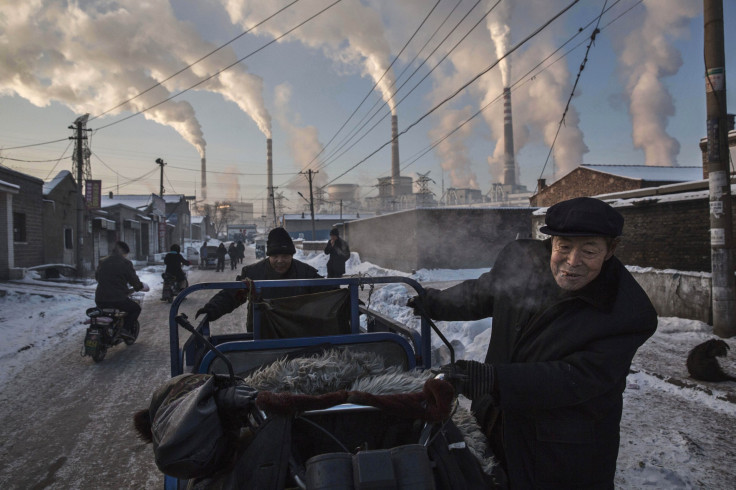China’s Carbon Emissions May Have Already Peaked, Study Says

China's carbon emissions may have peaked years ahead of its stated deadline. According to a study co-authored by the renowned British economist and climate action advocate Nicholas Stern, the country's emissions may have peaked in 2014 — a year before the target to do so by 2030 was actually announced.
“It is quite possible that emissions will fall modestly from now on, implying that 2014 was the peak,” the authors said in a statement accompanying the report. “If emissions do grow above 2014 levels — if, say, a number of the risks identified earlier [in the paper] manifest — that growth trajectory is likely to be relatively flat, and a peak would still be highly likely by 2025.”
China’s rise to the world’s second-largest economy was largely fueled by cheap, dirty coal. However, as a slowdown in growth led to a government-planned shift from carbon-intensive heavy industry to services, the country’s coal consumption dropped. Recent data shows that China’s coal consumption fell 3.7 percent in 2015 compared to 2014 levels, even as the government ramped up installation of clean energy facilities.
Although there is a possibility that China’s emissions may rise again once the economy recovers, the new study assumes that even under a “high-growth scenario,” annual economic growth will be just 6 percent in the coming decade — down from an average of over 10 percent in the first decade of this century.
“It has been argued that China is undergoing large-scale, rapid, and multidimensional changes in economic structure, with major implications for energy demand, at the same time as the energy supply is diversifying,” the authors said in the study. “Based on our analysis of likely future trends, we concluded that China’s CO2 emissions from energy — if they grow at all — are likely to grow much more slowly than under the old economic model.”
The findings also raise concerns that the target announced by the Chinese government may have been far too easy to achieve. This, in turn, may put Beijing under pressure to toughen its emissions reduction pledges.
“China’s international commitment to peak emissions ‘around 2030’ should be seen as a highly conservative upper limit from a government that prefers to under-promise and over-deliver,” the authors said. “Better global understanding of the extent and pace of change occurring in China should spur a reassessment of likely future global emissions.”
However, Chinese officials rejected the conclusions of the report and said that the country’s carbon emissions were still rising.
“I would like to believe that the peak will be around 2030, and if stricter policies for carbon reduction and some reforms in the way local leaders are evaluated on GDP growth, the peak will come in 2025,” Xi Fengming, a carbon researcher with the China Academy of Sciences, told Reuters. “I do not think China has reached peak emissions in 2014.”
© Copyright IBTimes 2024. All rights reserved.






















